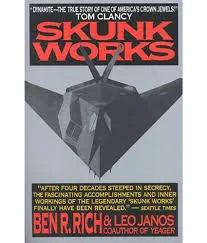It's amazing what you can find by searching the web -- if you know how to look.
I've been heads-down for the past few weeks on a client project, a strategic market analysis for an international outsourcing firm. I've been researching available public sources of sales and technology trends in a variety of markets. I've been aggressively pursuing a variety of web based research options as well as purchasing research documents in a few key areas.
All in Expertise Management
For my first weekly podcast I’ve recorded a twelve-minute commentary on All Kind Food’s “weekly top ten posts” as of November 29, 2006. To download the podcast, click the microphone:
EirePreneur has a real interesting use of OPML files and GRAZR -- a personal list of experts that is shareable. Now, I've just gotten through with updating my own feeds-on-web-page so I have some questions about the cumbersome nature of this process, but I like the idea. Check it out; it generates discussion about a variety of interrelated topics including tagging, taxonomy, what is an expert, and sexual discrimination (I kid you not).
Web 2.0 and the Manhattan Project
While listening to a podcast of a recent interview with Richard Rhodes, author of The Making of the Atomic Bomb, I was struck by the question, “What if the Manhattan Project had been conducted using the collaborative and social networking tools we now have?”
Luis Suarez recently blogged and podcasted about social bookmarking services. He highly recommends BLINKLIST, a service that I have not used.
I have been using RAWSUGAR, COGENZ, and CONNECTBEAM, so I also have been forming some personal opinions about social bookmarking.
Proposed Definition for "Expertise Management Systems"
In a recent slide presentation I proposed the following as a definition of an “expertise management system:”
Prompted by conversations with government contractors in the Washington DC area I’ve created a brief (and very high-level) slide presentation that lays out some of the basics of what I’ve been calling “expertise management systems.”
One blog I read is the Microsoft Knowledge Network Team Blog (registration required). It describes development and features of the "Knowledge Network" product that will accompany Microsoft's upcoming Microsoft Office SharePoint Server 2007 which is also in Beta status.
Rod Boothby (or someone using Rod’s name) recently stopped by and left the following comment attached to my recent accelerating network effects post:
Last week I interviewed “Boris” (not his real name) about his and his company’s handling of the pending retirement of senior IT staff who are critical to the maintenance and operation of a number of his company’s business-critical mainframe legacy systems.
I was initially interested in learning whether Boris thought that modern social networking and collaboration tools might be useful in documenting and transferring the specialised expertise staff needed for maintaining critical systems. Instead, the discussion took a different direction and revealed some underlying issues that go beyond technology enabled knowledge sharing.
Back on July 17 I wrote about the potential impact of pending retirement related “baby boomer brain drain” on IT departments, especially those heavily invested in supporting legacy mainframe systems.
As a followup I asked for research interviews with several CIO’s I know in order to get a better handle on the issue and to find out whether emerging Web 2.0 and social networking and collaboration technologies might be supportive of knowledge transfer to younger staff.
Professor David Wolber has used a social networking tool for people-tagging called Peoplicious to create an "expert systems" group -- "those interested in tools for locating experts" -- from the links included in John Tropea's survey article called The different ways of finding experts.
One of my recent blog postings is included in the Tropea article, so I'm included in Wolber's "expert systems" group.
Paul Carney provided this insightful comment on my earlier post titled What if Communities Don’t Share Their Expertise?:
Keeping people connected in order to share expertise is a great idea, but the problem is that those people who have a large amount of knowledge tend to grow very large networks.
Once upon a time I helped manage a complex post-merger system consolidation project where two mainframe based systems were being integrated. The client hadn’t done a lot of projects like that and hired outside consultants to help with the project planning, management, and execution.
We found out quickly that a few key client staff members were extremely scarce resources. One was a senior consultant who had been brought back by the client after his retirement. He was, hands-down, THE absolute expert on the target system’s very large and very complex database. I’ll call him “Alex.”
My friend Luis Suarez takes me to task for my post on expertise managment. He makes some very good points but I differ somewhat with how he interprets the role of “communities” within an organization. He says:
Enterprise Expertise Management Systems and Organizational Reality
Some of the early feedback I’m getting while researching and writing about enterprise expertise management systems is that some types of organizations might view them as disruptive. The purpose of this brief article is to discuss how this might be true in certain situations.
I'm using Raw Sugar as a research tool. Here's what I added to my Raw Sugar directory as a description:
Expertise, Skunk Works, and Project Management
I've been researching concepts like "expert management systems," "expert location," and "expert locator systems." My goal is to get a handle on the state of the art as it might be impacted by current social networking and collaboration technologies.
Expertise Management and World of Warcraft
While researching the topic “expertise management” as a follow up to earlier articles posted here, I came across a fascinating article concerning the automated construction of an “expertise database” that I think has some relevance for enterprise expertise management.
I recently wrote here about using social networking and information technology to improve access to expert knowledge within the enterprise. Luis Suarez has also commented about the "knowledge management" aspects of this idea.
An interesting experiment incorporating some of these ideas is already underway here in the United States -- the Peer to Patent Project.




